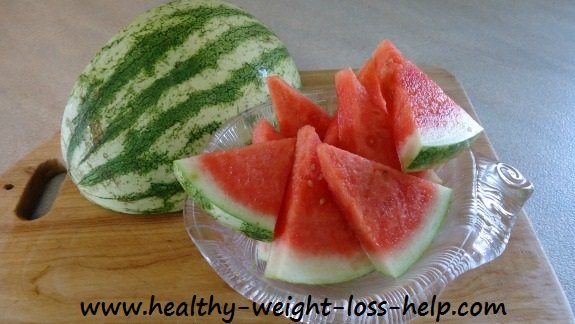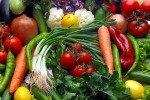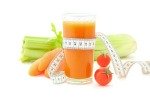Watermelon Nutrition
Great for Weight Loss
Watermelon Nutrition is just an added plus when it comes to this dietary thirst quenching fruit that screams summer time fun.
What's not to love. It has a beautiful red color, is refreshing, sweet and delicious, and offers us some important health benefits.
No wonder it makes the perfect picnic companion in the heat of the summer. It can be carried around easily, sliced just about anywhere and makes a mouth watering snack that is enjoyed by both young and old.
This melon makes a great dessert when dieting because it's sweet in flavor, offers natural sugar content yet is mainly water, which keeps the calorie count considerably low compared to its weight. Talk about enjoying a guilt free dessert.
The best part about eating watermelon is how well it can cleanse the palate. This can come in handy after eating a meal that may be a little heavy or on the greasy side.
Watermelon Nutrition:
According to the USDL for every one cup of diced watermelon (152 grams) here are some of its nutrients listed in the chart below:

What does watermelon nutrition offer us:
Helps with weight loss. As we notice from the chart the water content of watermelons is about 92 % and the sugar content is about 7.5 grams per 100 grams of the fruit.
That is why this fruit is so great for weight loss. The sugar content is low compared to the water content, therefore making it a not only nutritious, but a low calorie, sweet and delicious snack.
You are basically getting filled up with delicious water that satisfies any hunger.
Watermelon nutrition also helps replenish our bodies with important electrolytes and helps prevent dehydration.
Filled with lycopene which is an antioxidant. According to the National Watermelon Promotion Board, watermelon contains more lycopene than any other fruit or vegetable.
Source of vitamin A which helps maintain good eye health.
Source of vitamin C which helps strengthen the immune system and helps the body absorb iron.
Provides calcium, which maintains healthy bones and helps prevent osteoporosis.
Watermelon also offers adequate amounts of dietary fiber, which maintains regular bowel movements and can prevent constipation.
Studies have shown that high fiber diets can help reduce the risk of colon cancer.
Rich in potassium, a mineral that is essential for maintaining the pH levels in our body fluids.
Potassium plays an important role with the following functions:
• Regulates blood pressure
• Blood sugar maintenance
• Muscle function (helps prevent muscle cramping)
• Nervous system
• Heart function
• Kidney function
• Adrenal functions
• Bone mass and strength
• Needed for proper muscle growth
For a complete list of nutrients for the benefits of watermelon click the link below.
USDA Search Link - Nutrient Database for Standard Reference.
Tips:
There are many types of watermelon to choose from but for the most part people are more familiar with the red flesh melons such as crimson sweet or red seedless. But there are also ones that offer a yellow or orange flesh variety too.
How do you know if a watermelon is just right for the eating. You don't really. Unless the supermarket that you shop at offers a free taster then there is always a small chance that it may not be perfectly sweet.
Of course we don't want to buy one if it looks kind of beat up or has any soft spots.
During the season snack on watermelon as much as possible as it will keep you full with fewer calories.
Enjoy a bowl of watermelon 20 minutes before a meal. That will also help reduce your food intake during meal time.
What a fun way to detox. Watermelon Nutrition Anyone?
Wishing you health and happiness.
Useful Links:
Return from Watermelon Nutrition to Healthy Food List
Return to Healthy Weight Loss Help




New! Comments
Have your say about what you just read. Leave us a comment in the box below.